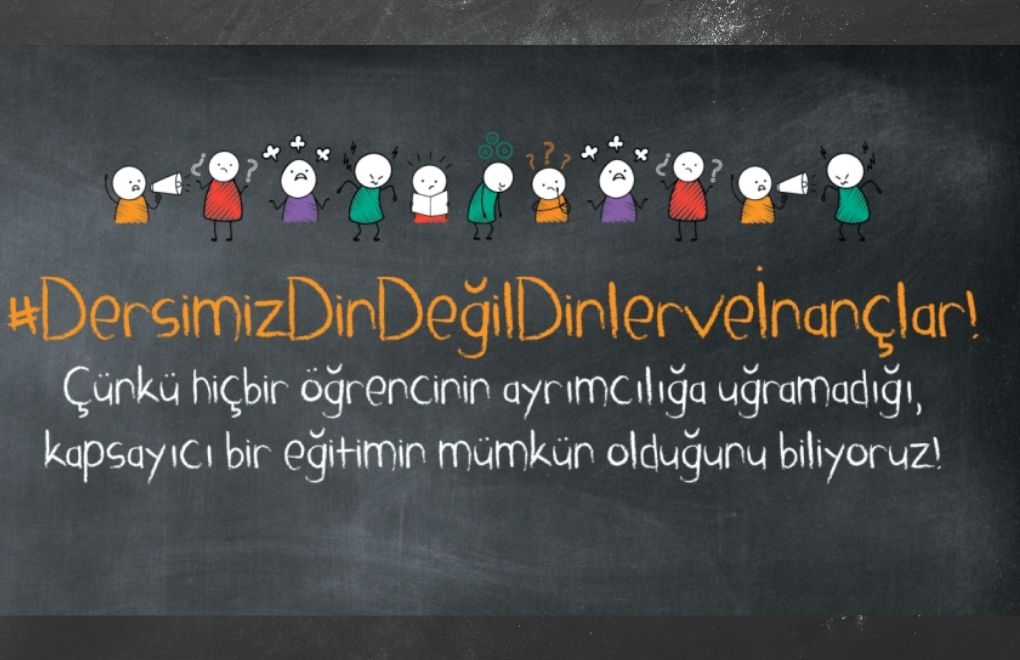Click to read the article in Turkish
The Freedom of Belief Initiative (İÖG) started a campaign against compulsory religion and moral knowledge classes in Türkiye.
İÖG issued a statement about the new campaign where they said, "Compulsory religion and moral knowledge classes is one important area of struggle for human rights and freedom of belief in Türkiye."
"No regulation made despite violation judgements"
The statement emphasized that, "In the education system, there was systematic interference with freedom of thought, freedom of conscience and freedom of belief of the child, the right of the child to participate, and the right of the parents to bring their children up according to own philosophical or religious views" and further said, "Türkiye has still not made the necessary regulations for these classes to be objective and pluralistic despite violation judgements by the European Court of Human Rights and by the Constitutional Court."
"Necessary for a pluralistic society"
According to the current curriculum, compulsory religion classes are taught not in an inclusive way, only with the perspective of Sunni Islam. This curriculum which is not impartial and not objective causes the children to face many problems including discrimination.
"Whereas we believe that an inclusive education could contribute to reducing discrimination, to social peace, to protecting freedom of religion and belief for everyone and to building of a pluralistic society. Again an objective curriculum can support the students so that they can understand social diversity better and develop the ability to challenge discrimination."
The problems children face due to the compulsory religion and moral knowledge classes were also listed in the statement of İÖP:
* Discrimination
* Violation of freedom of thought, religion and conscience
* Lack of objective information on religions
* Stigmatization and exclusion
* Being forced to disclose belief
* Disadvantage in exams
* Discriminative exemption
* Imposition and compelling
* Feeling that her/his identity is not respected
The following were on the other hand listed as some findings about the books used in compulsory religion and moral knowledge classes:
* The doctrines of Islam are presented as positive propositions.
* Expressions such as "our religion" "our prophet" "our holy book Koran" continue to be used in many books.
* The books for these lessons still have "religion educating" characteristic, they include information that is not impartial or objective about the religions, which is presented from the point of view of Sunni Islam. Such information may be in line with the religious or philosophical views of some parents, while they are in contradiction with those of some other parents.
* Alevism appears shortly in these books. Besides it is not indicated that djemevis are places of worship, or that whirl is one form of worship for the Alevi society
* Information on Judaism and Christianity is given saying the sources of these religions have been altered, with reference to the doctrine of Islam. Thus widespread prejudices and misinformation is reinforced.
* Philosophical approaches such as atheism or deism are not presented in an impartial manner, they are evaluated together with arguments of Islam.
* Children are canalized to certain behaviors indicated as the "correct" behaviors. The children are thus exposed to conditions in which they may have to act in violation of freedom of thought, religion or conscience. (RT/PE/VK)





.jpg)